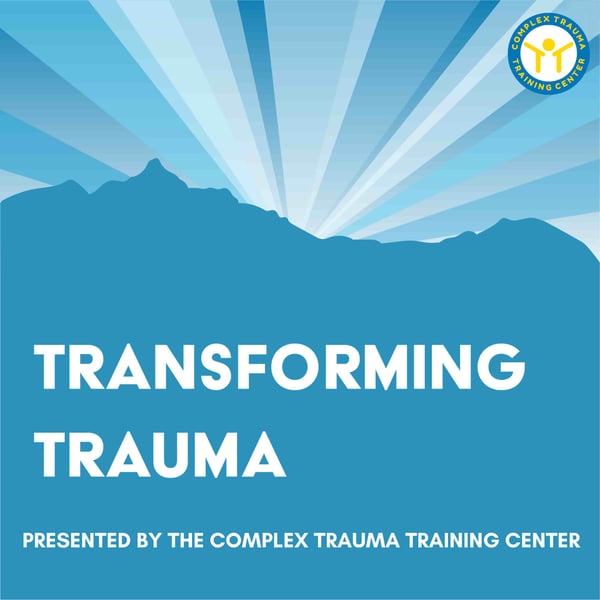Community-Based and Trauma-Informed Tribal Court with Judge Abby Abinati
Transforming Trauma
Brad Kammer
4.4 • 131 Ratings
🗓️ 20 April 2022
⏱️ 37 minutes
🧾️ Download transcript
Summary
Judge Abby Abinati is the Chief Judge of the Yurok Tribe, which is the largest surviving Native American Tribe in the state of California. Judge Abby shares about what she and her people have learned directly about cultural and intergenerational trauma, and how this trauma-informed understanding provides the context for her work within her community.
Judge Abby presides over what is called a wellness court, which offers a healing path for nonviolent offenders. She describes the Tribal judicial system as “responsibility-based” - as opposed to a “rights-based” system that has become the American standard. She provides real-life examples of restorative justice and how this promotes interpersonal healing, strengthening self-esteem and community relationships.
Judge Abby shares about the work she and others are doing to return to their traditional values and create systems that support them. She reflects on the healing she’s witnessed within her community, and says, “When you’ve gone through really hard times and you can share that, there is a way to make the pain lessen. What is another way out of this pain?”
About Judge Abby:
Abby Abinanti, Yurok Chief Judge is an enrolled Yurok Tribal member, she holds a Doctor of Jurisprudence from the University of New Mexico School of Law, and was the first California tribal woman to be admitted to the State Bar of California. She was a State Judicial Officer (Commissioner) for the San Francisco Superior Court for over 17 years assigned to the Unified Family Court (Family/Dependency/Delinquency). She retired from the Superior Court in September 2011 and on July 31, 2014 was reappointed as a part-time Commissioner for San Francisco assigned to Dependency, and Duty Judge for that Court where she served until 2015. She has been a Yurok Tribal Court Judge since 1997 and was appointed Chief Tribal Court Judge in 2007, a position she held in conjunction with her Superior Court assignment until 2015.
To learn more about the Yurok Tribe, please visit: http://www.yuroktribe.org/
To learn more about Judge Abby, please visit:
https://www.csmonitor.com/USA/Justice/2019/0327/Native-justice-How-tribal-values-shape-Judge-Abby-s-court
https://www.thenation.com/article/archive/judge-abby-abinanti-is-fighting-for-her-tribe-and-for-a-better-justice-system/
https://www.latimes.com/local/la-me-yurok-tribal-judge-20140305-dto-htmlstory.html
To read the full show notes and discover more resources visit http://www.narmtraining.com/podcast
***
NARM Training Institute
View upcoming trainings:
https://narmtraining.com/schedule
Join the Inner Circle:
https://narmtraining.com/online-learning/inner-circle
***
The NARM Training Institute provides tools for transforming complex trauma through: in-person and online trainings for mental health care professionals; in-person and online workshops on complex trauma and how it interplays with areas like addiction, parenting, and cultural trauma; an online self-paced learning program, the NARM Inner Circle; and other trauma-informed learning resources.
We want to connect with you!
Transcript
Click on a timestamp to play from that location
| 0:00.0 | Welcome to the Transforming Trauma podcast. |
| 0:08.3 | Transforming Trauma is presented by the NARM Training Institute. |
| 0:11.6 | I'm your host, Emily Ruth, and I'm so glad you've joined us today. |
| 0:15.7 | Hi, Transforming Trauma listeners. |
| 0:17.9 | We're excited to share with you that we have two upcoming Level |
| 0:21.7 | 2 NARM Therapist trainings beginning in May and in June. If you're a licensed mental health |
| 0:27.2 | practitioner, we invite you to join us for either of these NARM therapists trainings. One training will |
| 0:32.7 | take place in Austin, Texas, and the other training will take place live and online. This Level 2 training is designed to support mental health professionals who work with clients or populations |
| 0:43.3 | dealing with complex trauma. Being trained in NARM, one of the first clinical models specifically designed to address ACEs and CPTSD, |
| 0:52.3 | supports therapists to learn how to address the long-term |
| 0:55.7 | impacts of adverse childhood experiences and complex post-traumatic stress disorder. |
| 1:00.8 | If you're interested in this training, we encourage you to register now to reserve your spot. |
| 1:04.8 | For more information about both upcoming trainings, please visit narmtraining.com |
| 1:10.1 | forward slash level two. We look forward to |
| 1:13.2 | to you joining our growing international NARM community and are inspired to work with you to bring |
| 1:18.6 | NARM to your clients and communities in order to transform trauma. And now for our interview. |
| 1:26.7 | In 1974, Judge Abby Abinati became the first Native American woman admitted to the State Bar of California. She was appointed to the San Francisco bench over two decades ago and has specialized in family court and juvenile dependency. She has also served as a judge or magistrate for four other Western tribes. Since 2007, Judge |
| 1:47.0 | Abbey has been a Uruk Tribal Court Chief Judge in Klamath, California. In her conversation today, |
| 1:52.7 | she talks about the innovative and trauma-informed work she and her colleagues are doing in both |
| 1:57.3 | the courtroom and through programs for the community members that are dealing with the impacts of trauma. Judge Abby often presides over what is called a wellness court, which offers a |
| 2:06.3 | healing path for nonviolent offenders struggling with substance abuse. Please enjoy this conversation |
| 2:11.5 | with Judge Abby Abinati. All right, we are here with Abby Abinati. Hello and welcome to the podcast, Abby. |
... |
Please login to see the full transcript.
Disclaimer: The podcast and artwork embedded on this page are from Brad Kammer, and are the property of its owner and not affiliated with or endorsed by Tapesearch.
Generated transcripts are the property of Brad Kammer and are distributed freely under the Fair Use doctrine. Transcripts generated by Tapesearch are not guaranteed to be accurate.
Copyright © Tapesearch 2025.

